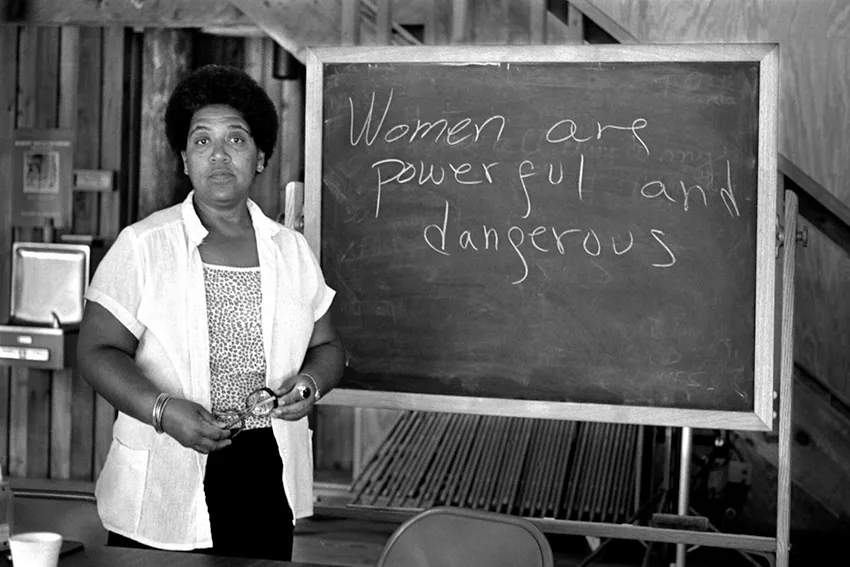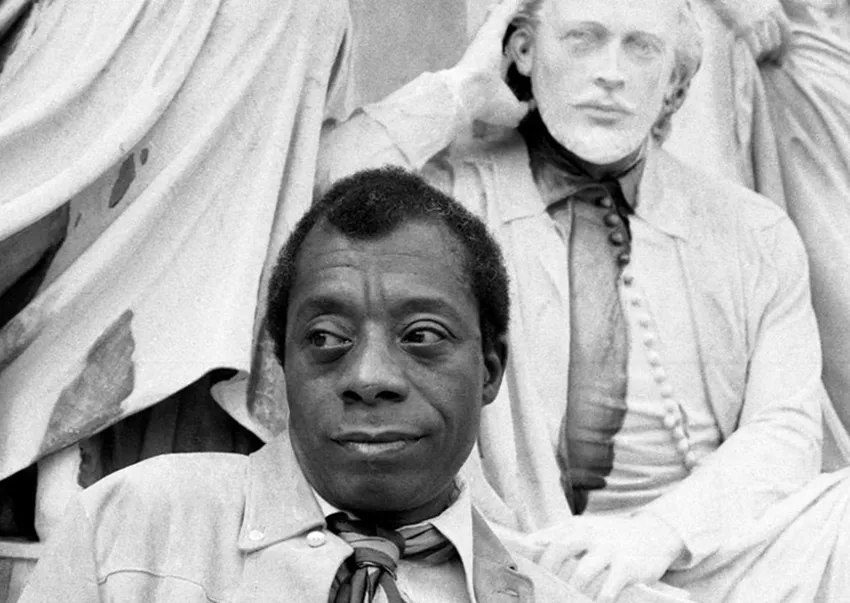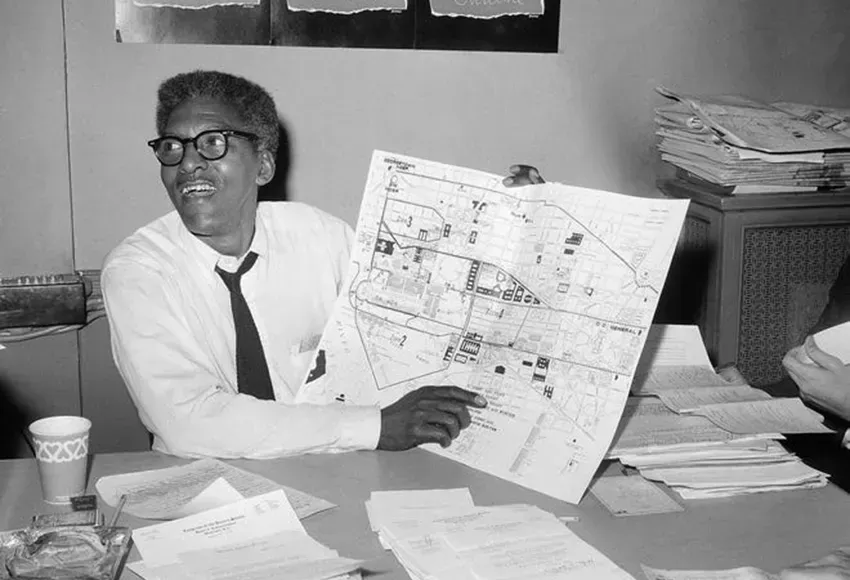February is Black History Month, a time to recognize the histories too often left out of textbooks and classes. Black people have shaped every aspect of history from antiquity to the present, and continue to lead modern world-changing movements. They have also been the leaders and change-makers throughout LGBTQ+ history. This month, the SGN is recognizing and celebrating some of the biggest names in LGBTQ+ Black history.
Bayard Rustin
Bayard Rustin was an influential advisor to Martin Luther King Jr. He helped organize the first proposed March on Washington in 1941, the Freedom Rides, and the Southern Christian Leadership Conference. Rustin taught King about nonviolent resistance.
In the 1980s, he became a public activist for LGBTQ+ rights and HIV/AIDS research. He advocated for socialism and was vocal about workers' rights.
Rustin expanded his career globally too, serving on humanitarian missions to Vietnam, Cambodia, and Haiti. He believed that the cause of freedom could not be left at America's borders. "You have to join every other movement for the freedom of people," Rustin said in an interview with Joseph Beam in 1986. He worked to help BIPOC people abroad until he died in 1987. In 2013, President Obama awarded him the Presidential Medal of Freedom posthumously.
Because of his sexuality, Rustin often stayed behind the scenes of major civil rights events. He is sometimes excluded from Black history lessons and is less well-known than other activists because of his identity as a Gay man.
Rustin was a known pacifist and believed in the power of protest. He once wrote, "When an individual is protesting society's refusal to acknowledge his dignity as a human being, his very act of protest confers dignity on him."

Audre Lorde
Lorde was a "Black, Lesbian, feminist, socialist, mother, poet" who used her talents as a writer and speaker to challenge all forms of injustice. She believed there was no hierarchy of oppressions, and was a pioneer in the theory of intersectionality.
Her melodic and powerful spoken word skills are some of the best of all time. Her writing explored her experiences as a Black woman, a Queer person, and someone with a disability, as she grew up legally blind, as well as the topics of love, motherhood, loneliness, and injustice.
Lorde wrote her first poem at the age of 12. It was originally rejected by her school's literary magazine, so she sent it to Seventeen, where it was picked up. In the 1970s, she established Kitchen Table: Women of Color Press, a publishing firm for BIPOC women, who were often excluded from the field. In the 1980s, she expanded her activism, advocating for Black women in South Africa and Cuba.
Lorde's early poetry reflects the civil rights, feminism, and antiwar movements she was a part of. "The master's tools will never dismantle the master's house," she famously said.
In 1968, she published her first volume of poems, The First Cities. Her second collection, Cables to Rage, was the first to address her identity as a Lesbian. Her later work, including the New York Head Shop and Museum, explored her experiences with the civil rights movement and how that intersected with her repressed childhood.
As her career took off, Lorde began experimenting with prose writing. In the 1980s, she wrote The Cancer Journals and Sister Outsider, explorations of her struggles with illness and her desires for the future.
Lorde believed in the theory of difference, that the binary between male and female is too simplistic, and that female identities are built on subdivisions.
Lorde often called white feminism out for its exclusion of women of color, arguing that race and civil rights are inherently feminist issues, and those who ignore it do a disservice to the movement.

James Baldwin
Baldwin changed the world with his words. He started his career in Paris, where his writing, published in Left Bank anthologies, explored the differences between Black Americans and Black Parisians and the violence against the LGBTQ+ community in the US, which Baldwin believed was a side effect of the country's adolescence. Baldwin also wrote several pieces against protest literature, which he believed enabled white racism toward Black Americans through restructured self-hatred.
In 1953, Baldwin published his first novel, Go Tell It on the Mountain, a semiautobiographical work focusing on his early adulthood. In 1955, he published his first collection of essays, Notes to a Native Son. His third book, Giovanni's Room, was highly controversial due to the explicit homosexual depictions in the 1956 publication.
His career accelerated along with the American civil rights movement. He was haunted by the brutal murder of Emmitt Till and was ultimately moved to write Blues for Mister Charlie.
In the 1960s, Baldwin returned to New York, where he continued to write novels exploring the intersections of Black, Gay, and Bisexual identities. His work would eventually inspire the movies If Beale Street Could Talk and I Am Not Your Negro.


